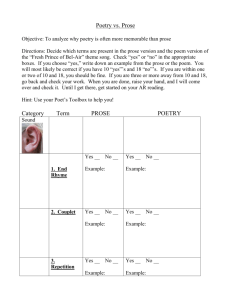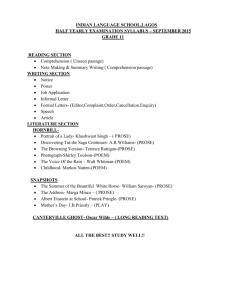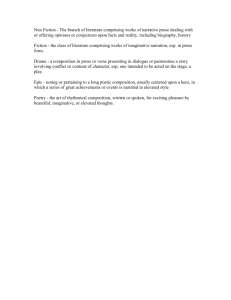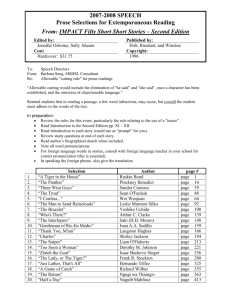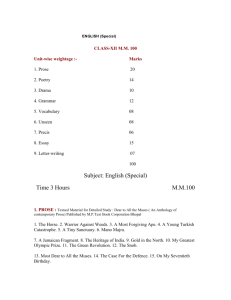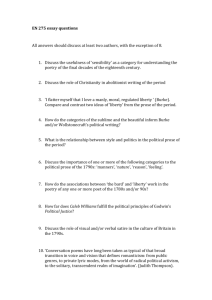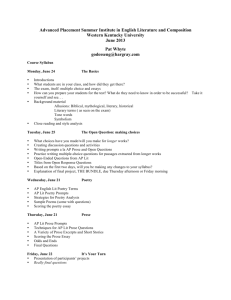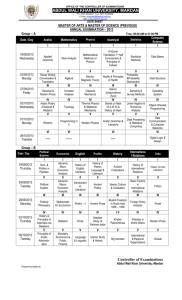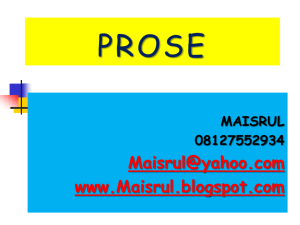Prose & Poetry
advertisement
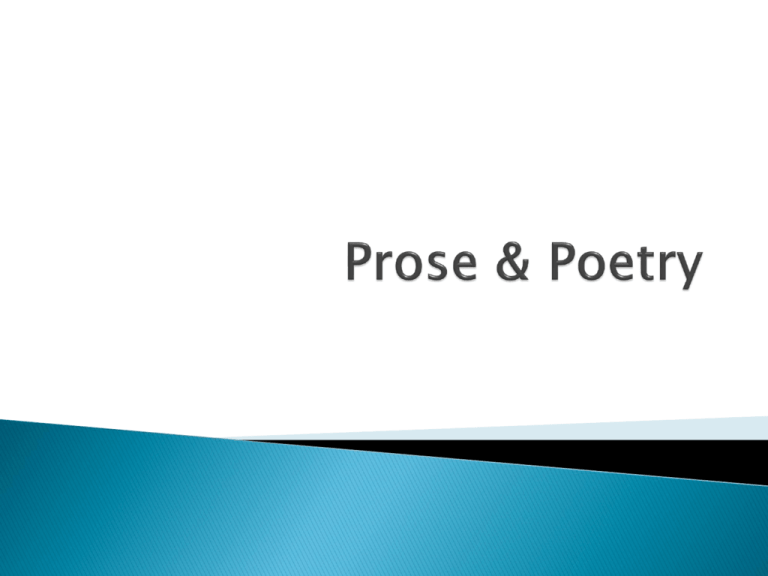
Prose is a form of language that has no formal metrical structure. It applies a natural flow of speech, and ordinary grammatical structure rather than rhythmic structure, such as in the case of traditional poetry. Normal every day speech is spoken in prose and most people think and write in prose form. Prose comprises of full grammatical sentences which consist of paragraphs and forgoes aesthetic appeal in favor of clear, straightforward language. “The woods are lovely, dark and deep. But I have promises to keep, And miles to go before I sleep, And miles to go before I sleep.” Prose Form “The woods look lovely against the setting darkness and as I gaze into the mysterious depths of the forest, I feel like lingering here longer. However, I have pending appointments to keep and much distance to cover before I settle in for the night or else I will be late for all of them.” “Stopping by Woods on a Snowy Evening” written by Robert Frost. 1. Nonfictional Prose: A literary work that is mainly based on fact although it may contain fictional elements in certain cases. Examples are biographies and essays. 2. Fictional Prose: A literary work that is wholly or partly imagined or theoretical. Examples are novels. 3. Heroic Prose: A literary work that may be written down or recited and employs many of the formulaic expressions found in oral tradition. Examples are legends and tales. 4. Prose Poetry: A literary work which exhibits poetic quality using emotional effects and heightened imagery but are written in prose instead of verse.

